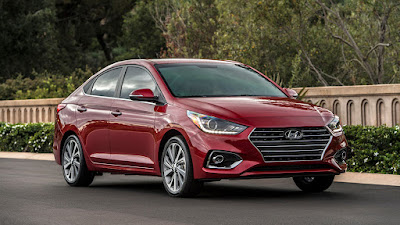The Global NCAP has called out carmakers such as Hyundai for what the agency calls a “double standard” when it comes to vehicle safety.
At the first UN General Assembly High Level Meeting on Road Safety in New York, the Global NCAP showed what happens if you crash a Hyundai Grand i10 sedan sold in Mexico with a comparable Hyundai Accent sold in the United States.
Both of these models are the cheapest sedans from Hyundai that consumers can buy in their respective markets. However, the Accent, with its standard 6 SRS airbags and electronic stability control (ESC) showed solid crash safety performance. Meanwhile, the Grand i10 sedan, fitted only with two airbags, performed poorly particularly in protecting the chest and head of the driver.
The protection the Accent offered to its driver during the crash test was good and the model showed a stable structure. The Made in India Grand i10 sedan, however, showed an unstable structure and poor protection to the driver with a high probability of life-threatening injuries. This would have resulted in a zero-star rating by the Latin NCAP.
It must be noted that the Hyundai Accent, sold in the Philippines, still has airbags considered as optional equipment. It doesn’t even offer anti-lock brakes (ABS). In 2018, Hyundai has admitted that they have been lax when it comes to global safety standards, and they promise to do something about it.
“This test is a wakeup call to consumers, regulators, and car manufacturers. All consumers, no matter where they live, have the right to expect the same standard of safety in their cars. The cross-border safety gap should no longer exist. We call for manufacturers to stop the double standard strategies in the world,” said Alejandro Furas, Latin NCAP Secretary General.
Stephan Brodziak, Latin NCAP Chairman said, “It hurts to witness once again the terrible double standard with which part of the car industry operates in Latin American and Caribbean countries. This inevitably forces us to think about the suffering that these cars, built under this scheme, end up causing to our families, societies and economies.
In addition, it reveals the great pending task in order to make the Latin American car market mature: the absence of a vehicle safety label. A safety label in all new cars can alert consumers about the risks of low-safety cars and allows the market to move to a commercial logic, turning the car industry, established in our region, into a competition for the safety performance offered that goes beyond the regulatory framework of a country.”
Towards Zero Foundation, a UK-registered charity working for a world free of road fatalities pointed out that the vast difference in vehicle safety between the Hyundai Grand i10 sedan and the Accent is down to the relentless lobbying by Mexican carmakers to delay the application of minimum UN vehicle safety standards. They said that this has happened first for front and side-impact crash tests, but also for the implementation of electronic stability control and pedestrian protection.





Hmm, so the Made in Japan/Europe still counts then?
ReplyDeleteNot necessarily. A car can be made anywhere, but Global NCAP says that carmakers should standardize the safety technology that they offer.
DeleteLike I mentioned before, regionalization is just a better term for duping markets like ours. Third world specs at first world prices.
ReplyDelete